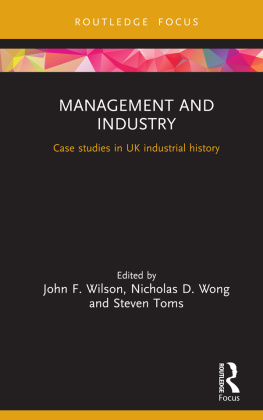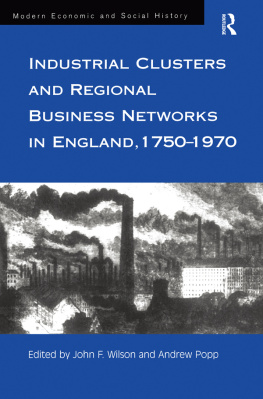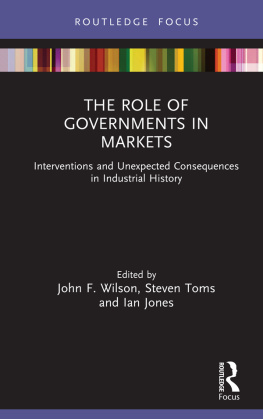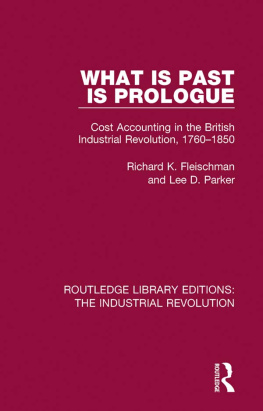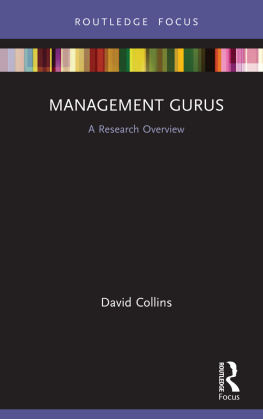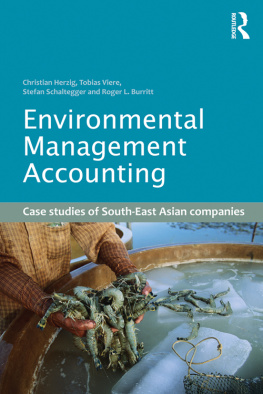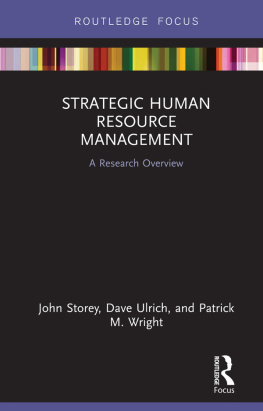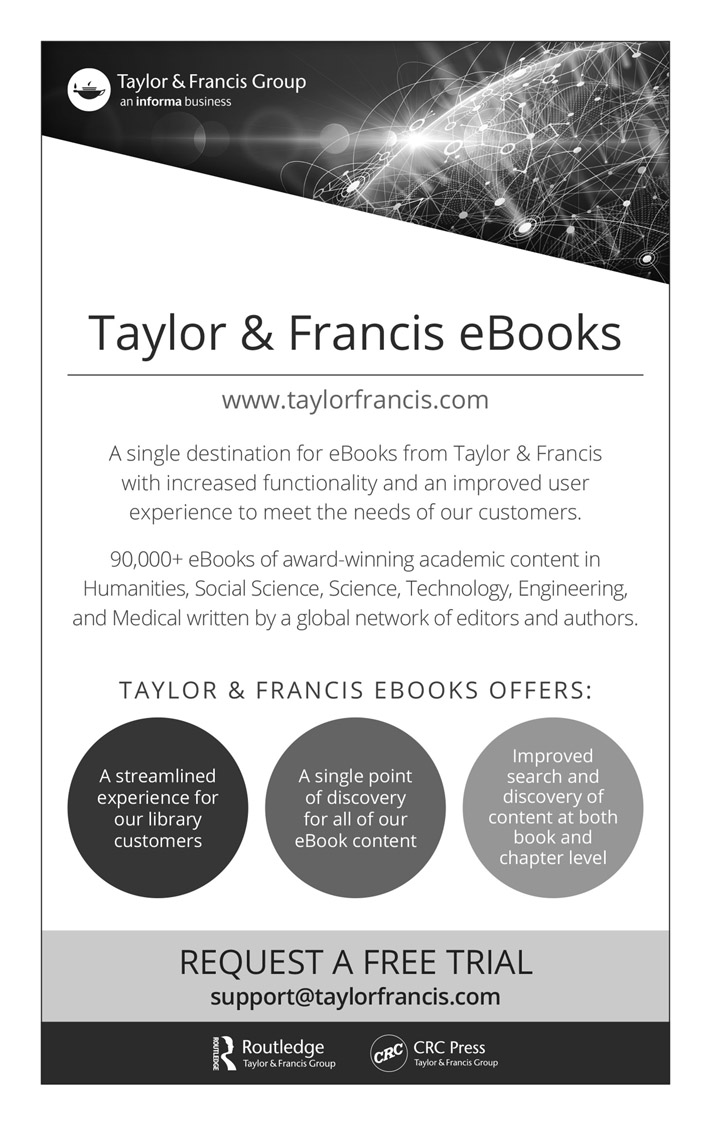Chapter 1
Business history and organization theory
Michael Rowlinson
There is a growing consensus among business historians that they need to engage with the theoretical concerns from related fields
There is no easy way to define organization theory. It can be said to consist of clusters of research programmes held together by the discourse of specific communities of theorists with overlapping interests.
In considering the potential for dialogue between organization theory and business history I want to explore two themes. One theme is the possibility of business historians having a genuine engagement with organization theory by being able to choose between alternative paradigms, and also by contributing a historical perspective to the debates within and between paradigms. This challenges the implicitly accepted view that in order to become more theoretical it is sufficient for business historians to be passive recipients of theory from economics or sociology. In addition to overcoming the The other theme is the different implications that alternative perspectives in organization theory have for the narrative company case studies that have hitherto been a mainstay of business history. In my view there is a danger that a more explicitly theoretical orientation may lead to an increased separation of theorised business history from narrative company history.
Given the impossibility of reviewing the whole gamut of organization theory I have chosen to structure this article around the three most prominent discourses that hold the major research programmes together.post-modernism.
Organizational economics
Business historians know only too well that the so-called theory of the firm in neoclassical economics is not a theory of the firm at all.
It could be argued that the resource based view of the firm allows most scope for a historical dimension because of its emphasis on the importance of path dependence. This leads to a view that the development of certain resources and capabilities by a firm depends upon a unique series of events in the firms history. which should concern business historians interested in the internal politics of companies.
Given the prominence of transaction cost economics I will rehearse some of the criticisms that can be levelled against it from both historical and sociological perspectives before considering organizational economics in general as a manifestation of economic imperialism and the implications of this for business history.
Transaction cost economics
It is claimed that transaction cost economics subscribes to the proposition that history matters. The importance of history in transaction cost economics has at least three dimensions. First, it is recognised that situations change over time. For example, a large number of suppliers may compete prior to a transaction. But once one or a few suppliers have made significant investments in assets that are specific to the transaction, the situation is transformed to one of a small number of suppliers who may enter into a bilateral relationship with buyers. Second, it is acknowledged that Tacit knowledge and its consequences are important. Finally, it is accepted that The entire institutional environment (laws, rules, conventions, norms, etc.) within which the institutions of governance are embedded is the product of history.
The statement that history matters might be taken to mean that the compatibility of business history and transaction cost economics is assured. But there are several reasons for treating such a statement with caution. In the first place the statement needs to be qualified with the rider that it does not imply that only history matters. This allows for a critique of path dependence, which is relegated to a subordinate role whereby it merely delays efficient outcomes.
When assessing the statement that history matters it needs to be remembered that history is an ambiguous term. Coase has pointed out that the unreal world of equilibrium and perfect competition, which is so readily susceptible to mathematical analysis, is also a world to which it is difficult to apply a meaningful concept of time. However the acceptance that temporal or spatial dimensions need to be incorporated into explanations for the existence of particular organizational forms, does not necessarily require or justify empirical historical research into the origins of those organizational forms. If the logic of history can be explained satisfactorily in theoretical terms, then there is no need to refer to the narration of what has happened, except for the purposes of illustration. Organizational economics can be seen as an advance on the neoclassical theory of the firm, which does not account for time. But a theoretical account of the importance of time does not necessarily entail a sociological or historical interpretation of actual events.
A good example of economists preference for hypothetical as opposed to actual history,
Transaction cost economics can also be criticised for failing to offer any explanation of the causal process whereby one form of organization arises and replaces another.
The Panglossian assumption that Whatever is, is efficient,
While functionalism is a feature of the discourse of organizational economics, it is less in evidence in alternative economic accounts of organization. For example, power is seen as ubiquitous in capitalist firms in neo-Marxian contested
Economic imperialism
Having modified the theory of the firm in order to account for the existence of formal economic organization and various features of it, economists then propose that their preferred theoretical framework should be adopted by business historians. Organizational economics is also committed to the same deductive methodology as neoclassical economics. These characteristics mean that organizational economics can be seen as part of the imperialistic expansion of the economics.
Economists and their sympathisers in business history might object to the characterisation of organizational economics as imperialistic. Transaction cost economists claim that there is a healthy tension involving a genuine give-and-take between organizational economics and organizational sociology.social sciences and humanities.
The imperialistic pronouncements of economists,
The implication of theory construction in economics is that all theoretical utterances in the social sciences should be reconciled with a unified general theory, and economists are rigorously trained in the analytical skills required to police the social sciences for irreconcilable statements. This leaves no room for paradigm diversity. Unless a historian is prepared to indulge in a deductive exercise to demonstrate the superior logic of one economic theory of organization over another, in other words to become an economist, then he or she has no criteria for choosing between economic theories that would satisfy an economist. If a historian chooses, say, a functional efficiency theory, such as transaction cost economics, over a theory of power, such as contested exchange, then this is likely to be an expression of mainstream rather than radical political sympathies and a concomitant faith in the intellectual superiority of favoured theorists.
The methodology of economics leaves little room for any contribution from the detailed historical case studies produced by business historians:
This methodology can be discerned from the format of papers written by organizational economists. In the first place some phenomenon of interest is selected, for example the trite suggestion that managers who trust their employees obtain better results than those who do not. The evidence for this need be no more than anecdotal, a newspaper article that caught the economists eye might suffice, but a detailed case study is certainly not required. This is followed by a list of assumptions that would need to be made in order to construct a model of an imaginary world in which the said phenomenon would result from the actions of self interested rational actors.

